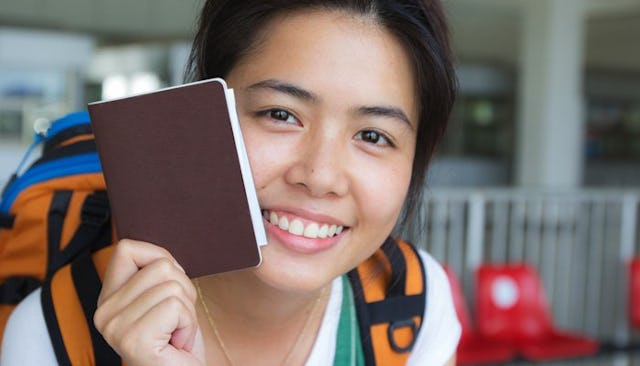The View From Overseas: Parenting The Foreign Service Child

“You have your diplomatic passport and your regular passport, right?” I asked him the night before he was scheduled to leave me.
“Mooommmm,” my 15-year-old groaned and rolled his eyes. “I’ve done this before, remember?”
This morning, he’s leaving Moscow, where we live, and flying to Romania with his school’s baseball team, without me.
He’s right—he has done this before. As an international school student, he’s been traveling across country borders without his parents since he hit the sixth grade. He’s been all sorts of places, from Dubai to Singapore, without me standing by to manage his passports or locate the nearest restroom. So I know, on an intellectual level at least, that he is capable of packing and getting where he needs to go. But somehow I can’t quite wrap my head around the fact that this small boy of mine can do these things without me.
The first time I ever flew on an airplane I was a 20-year old college student, bound for a semester abroad. Security being what it was then, my parents were able to walk me right to the gate at Los Angeles International Airport and wave goodbye to the plane as it pulled away.
My 15-year old, the eldest of four, has grown up differently. As the child of a diplomat, he has two passports—the diplomatic one for use overseas and the regular one for use when he returns “home” to the United States. He boarded his first plane at 5 weeks old. I don’t know how many countries he’s visited already. 15? 20? Yet, I still don’t like putting him on a plane without me. It shreds the illusion that I can keep him safe.
Diplomat kids are different. They are able to read body language in a way regular kids typically can’t. They have to learn to do this when they switch schools so often and make friends with so many non-American kids. They are typically pretty smart about the world, too. My kids can find Palestine on a map and tell you the reasons why you might not see it on some maps. They can navigate the Moscow subway alone. They can order falafel sandwiches, in Arabic, in Amman or Jerusalem. I’m amazed sometimes at the things they can do—things that still terrify me, their less adventurous mom, at times. I’m amazed and proud.
But there are other, simpler things that they can’t do.
They can’t mark their height year by year on a bedroom wall. They can’t name their best friend, the one they’ve been in school with for the last 10 years, because they lose their friends with each summer rotation, and best friends often move half a world away. They can’t schedule weekend sleepovers with their grandparents and cousins. They can’t ride skateboards outside—no sidewalks at post, maybe, or too much risk of terrorism.
I wonder as I watch my four children grow up: Is it worth it? Sure, they’ve walked on the Great Wall of China. They’ve dipped their toes in the Mediterranean Sea, snorkeled in the Red Sea, floated in the Dead Sea. They’ve sledded down glaciers, ridden camels and gazed up at the ceiling of the Hagia Sophia. They’ve shaken hands with presidents and secretaries of state.
But they’ve also cowered in the safe haven after an embassy alarm went off. They’ve sobbed as they’ve hugged friends goodbye forever. They’ve watched in fear as their dad, a special agent with the State Department’s Diplomatic Security Service, ran outside to stop an intruder who made it onto the embassy compound. They’ve been challenged in school by other students who didn’t like Americans. They’ve watched their dad board a plane bound for Iraq, worrying about when—or whether or not—he’d return.
Is the tradeoff worth it? When they grow up, will they look back and think of the good, or will they complain of missing out on a “normal” childhood?
There’s no way to know, not really. I can see that I am raising smart, confident kids who will be able as adults to thrive in complex, multinational, multilingual environments. These are kids who don’t think twice about jetting off to Kuwait to play baseball. But I also see that I am raising flawed, scarred children who have nightmares about losing their dad to terrorists and who have already learned too much in their waking hours about love and loss.
He’s leaving me now, this first son of mine. Only 15 years old, and he’s too far away for me to intervene if he gets in trouble. Sometimes it seems like the foreign service life we’re living has already made me superfluous. Not too many years ago, this child flew to Kazakhstan dragging a Thomas the Tank Engine carry-on behind him. Today he packed his own suitcase and walked out the front door on his own, headed to the airport.
I was pacing around the empty house when I heard to buzz of my cell phone.
“Mom,” said the text, “I forgot. Do I use my diplomatic passport or my regular one?”
I guess he still needs me after all.